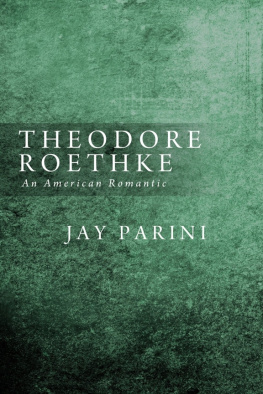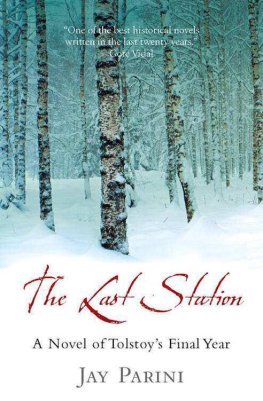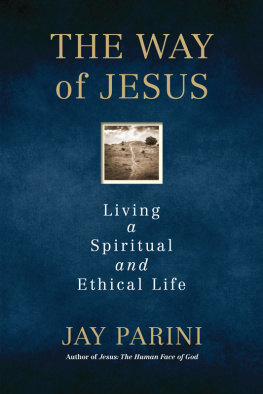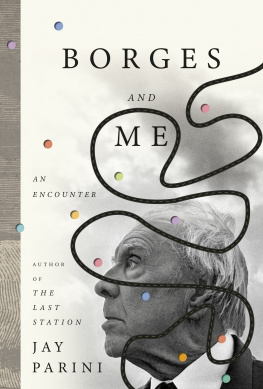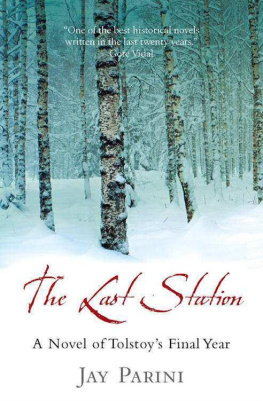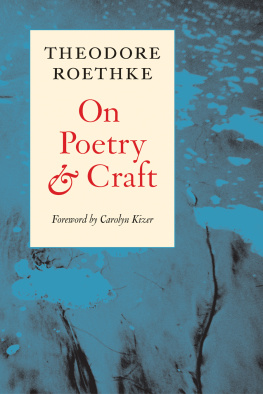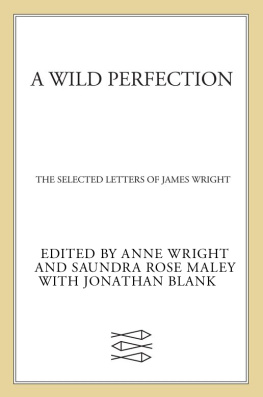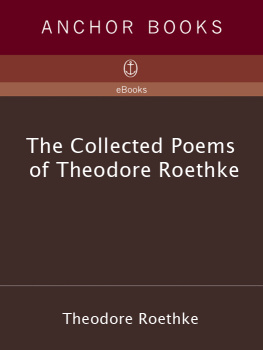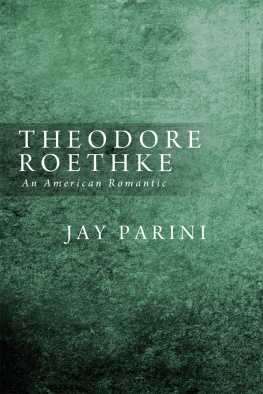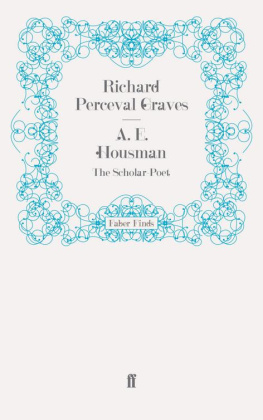CHAPTER ONE AMERICAN ROMANTIC
There is at the back of every artists mind something like a pattern or type of architecture. The original quality in any man of imagination is imagery. It is a thing like the landscape of his dreams; the sort of world he would like to make or in which he would wish to wander; the strange flora and fauna of his own secret planet, the sort of thing he likes to think about. This general atmosphere, and pattern or structure of growth, governs all his creations, however varied.
G. K. Chesterton
This book offers, in effect, a map of Theodore Roethkes secret planet; it is an attempt to reconstruct his mental world, to discern the pattern at the back of his mind as it is revealed by his poems. Roethke was a great poet, the successor to Frost and Stevens in modern American poetry, and it is the measure of his greatness that his work repays detailed examination. Roethke saw himself as working within a great tradition, modifying and extending it after his own fashion. Specifically, Roethke was a Romantic. His work abounds in references to Blake, Wordsworth, and Yeats, especially, but my stress is upon the American quality of his Romanticism with Emerson and Whitman as primary ancestors, with Stevens as a strong contemporary influence. Without impugning his originality, one can read all Roethkes work as a continuing conversation with his precursors; he was a poetic ventriloquist of sorts, able to speak through masks of those whom he called the great dead. Still, there is a voice at his core which is unmistakably his own. He has his special province, a landscape so personal and distinct that no amount of imitation or writinglike-somebody-else, as he called it, disturbs the integrity of his voice. His poetic world is self-contained and secure.
As my epigraph suggests, the genius behind any imaginative work has something to do with imagery. Roethkes verse from Open House (1941) to the posthumous The Far Field (1964) displays a consistent and vivid imagery found only in the greatest writing. His images derive from the dream world of his Michigan childhood, and one soon finds that a few key symbols operate throughout his work, most important the Father (who is alternately the poets biological father, Otto Roethke, or God), the greenhouse, and the open field (where illuminations generally occur). There are minor symbols in this cluster, toothe wind (spirit), the stone (associated with transcendental experiences) and the tree (selfhood). The image of Woman as mother, lover, or sister is present from the beginning, taking on greater significance in the middle and later periods. The central figure in all the poems is Roethke in his mythic projection as the lost son. Indeed, the Lost Son sequence, published between 1948 and 1953, represents this poets most permanent contribution to modern poetry. The later part of the sequence, called Praise to the End!, takes its title from Wordsworths consummate autobiographical poem, The Prelude; it was no doubt a conscious effort on Roethkes part to identify himself with this primary Romantic mode. I explore these connections fully later in this study, for Roethke is a poet of the egotistical sublime (to use Keatss description of Wordsworth). He appropriates for himself those parts of the world that make up the imagery or world picture at the back of his mind. These images became the signposts of his secret planet, and we can know Roethke best by knowing his entire work, by following his personal development from unrealized potential to self-discovery and, ultimately, self-transcendence.
Roethkes poetry will never be properly understood unless read within the context of Romanticism in its American manifestation. The work of recent critics has been invaluable in showing the breadth and continuity of the Romantic movement from its origins in eighteenth-century Germany to the present. What seems constant in this nearly intractable movement is the recognition that every man is cut off from nature; given this state of affairs, art becomes indispensable in the process of reconciliation between self and nature (subject and object). Every man has either to make his peace with nature or wage his own war between the mind and sky (as Stevens called it).
If the European man of feeling considered himself alienated from nature, the American found his isolation all the more intense. Emerson, Thoreau, Whitman, Melville, and Hawthorne felt cut off from the old world culture; they were isolated men, forced to depend on their personal resources for inspiration and fulfillment. Even more so than English Similar claims can be made for Roethke.
Romantic poets share the concept of nature as a living whole, an organic unity that somehow points to a spiritual realm and relates to man.
To long for a purity not available within nature or the natural processes is a common Romantic urge, and Roethke does not escape its pull. One critic points to the poem called Snake, where Roethke notices a young snake drawing away and says:
I felt my slow blood warm.
I longed to be that thing,
The pure, sensuous form.
And I may be, some time.
It would seem contradictory that this form could be both pure and sensuous, but Roethke wants to relinquish nothing. Like Stevens, he believes that the greatest poverty is not to live / In a physical world. He seeks out that anguish of concretenessa total immersion within nature. In the early poem Epidermal Macabre, Roethke, again, wishes the body away, but the spirit he longs for remains carnal:
And willingly would I dispense
With false accouterments of sense,
To sleep immodestly, a most
Incarnadine and carnal ghost.
(CP, p. 19)
Yeats makes a similar wish in The Tower, and Roethke is as much a Platonist as his Irish master. His one pure expression of the body-spirit dichotomy occurs in the late poem Infirmity where the gradual separation of these previously integrated elements is acknowledged: How body from spirit slowly does unwind / Until we are pure spirit in the end (CP, p. 244). But this unwinding comes only after the body ceases to provide joy, in either old age or sickness. For the most part, Roethke accepts his physical state as something worthy of celebration. The body is the source of all energy. It is part of the natural world and, in the highest state of consciousness, self and other intermingle. Self-possession becomes world possession, as in The Long Waters:
I lose and find myself in the long water;
I am gathered together once more;
I embrace the world.
(CP, p. 198)
Like Wordsworth, Whitman, and Yeats, Roethke was writing the poetry of autobiography, working with the materials of his own life and Open House will be examined later, for it serves as a prelude to Roethkes career, and the contrast between this apprentice volume and The Lost Son (1948) is startling. The question is what happened to the poet in the early and mid-forties to effect his transformation from minor versifier to major poet? How did the discovery of psychoanalysis work in the poet to release his imaginative energies?
The answer involves Roethkes relationship to the Romantic movement as it developed in America. An important clue is offered by Norman O. Brown in Life Against Death:
If psychoanalysis must say that instincts, which at the level of animality are in a harmonious unity, are separated at the level of humanity and set into conflict with each other, and that mankind will not rest content until it is able to abolish these conflicts and restore harmony, but at the higher level of consciousness, then once again it appears that psychoanalysis completes the romantic movement and is understood only if interpreted in that light. It is one of the great romantic visions
Next page
